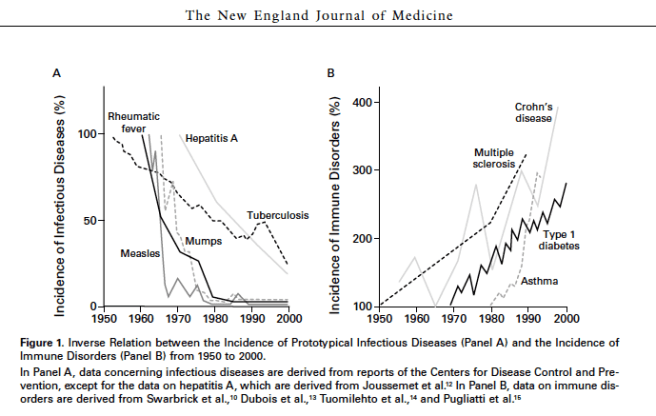The prevalence of allergic diseases has dramatically increased in recent decades, and these diseases currently affect one in five people in the US. Allergic and autoimmune diseases also reduce quality of life and they are expensive, costing approximately $15 billion annually. The massive increase in allergy has occurred along with many social changes, such as altered infant feeding practices, antibiotic use, urban living, and reduced family size. All these lifestyle changes can result in reduced microbial exposure. How important could it be to have a diverse microbiota in early life? More generally, how does exposure to microorganisms affect chronic inflammation and allergic diseases? Is exposure to a diverse microbial environment a good or bad thing for human? Should physicians treat diseases by manipulating gut bacteria?
Writing assignment:
How does exposure to microorganisms affect chronic inflammation and allergic diseases? Is exposure to a diverse microbial environment a good or bad thing for humans?
Readings:
(If you have time, listen to the interview and read the excerpt in the link above.)
Optional extras:
Highly recommended Radiolab program on hygiene and hookworm:
Excellent NPR piece on microbiota diversity:
Categories: Uncategorized
Joe Alcock
Emergency Physician, Educator, Researcher, interested in the microbiome, evolution, and medicine


1 reply ›